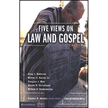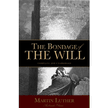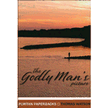When asked why one chooses Christ and another does not the universal answer from the Arminian is because:
When all is said and done your salvation is up to you:
But that is fraught with:
The mystery of human love still baffles minds as unsolvable. Why? What is it that takes the heart and hurls it over a cliff headlong? How is it that such coarse a smith's hand holds a flower's stem and the cold steel voice becomes as soft as petals and as pleasing as lavender in mist?
Just because? It's up to you? We don't know what love is? Nah!
What love is this? It is a love that gives us a new heart which is spread abroad with the love of God:
So it is now my cause to show that this is exactly the same case for those being regenerated. They choose Christ because they have a new heart. I will demonstrate that the choice to believe must spring from a heart and nature that loves Christ if it is to be a faith that is pleasing to Him. Further the prophet Ezekiel said the result of giving the new heart is that is causes his people to walk in His ways. In other words, there is no heat without a fire, there is no sight without an eye; there is no hearing without an ear; and there is no believing without a new heart. Belief is what is required in the New Covenant and belief is what characterizes those who have been born again (1 John 5:1). We believe the gospel because it is now in our nature to love Christ and see his beauty and excellence. Our natural hostility has been disarmed because it was replaced by another affection. Now to all those who choose Christ do so because their new nature compels them to. A regenerate person never resists the desire to believe. He believes because he wants to and cannot do otherwise.
That's what love is.
Tuesday, December 30, 2008
Why?
This hit ordered by
Strong Tower
0
In the Speak-Easy
![]()
Labels: All we need is love, Arminianism, Precious Remedies
Tuesday, December 16, 2008
Universalism Squeezing Arminianism
This post from Steve Hays at Triablogue presents an interesting question that I think all synergists (not merely Arminians) need to answer. Read his post. It doesn't start out as an attack on Arminianism, but rather winds up posing some sticky questions re: "evangelical" universalism.
If you're too lazy to read the post, here's the point that is interesting. Universalism is on the rise in modern "evangelicalism" (so-called.) The Universalists use a lot of the same texts to prove their case that the Arminians use to combat Calvinism, texts focusing (supposedly) on God's great desire to save each and every individual. And, it seems, it's the Universalists who take these texts at greater "face value." This highlights the oft-made observation that many of the Arminians proof texts, if they prove Arminianism, really prove more than that: Universalism. (e.g. When the Bible tells us that Jesus is the "savior" of the whole world, on the face of it that would seem to support Universalism more naturally than it would Arminianism, especially when Arminians hold such statements up as proof against the idea of decretal election.)
Since we are graced here with the presence of some thoughtful Arminians and other synergists on occassion, I'm curious what your answer is to Hays' post. And, of course, I'd challenge you to answer him directly. I've got my popcorn ready.
This hit ordered by
Gordan
32
In the Speak-Easy
![]()
Labels: Arminianism, Synergism, Triablogue
Saturday, December 13, 2008
A Mediocre Review of a Great Book: "Precious Remedies Against Satan's Devices" by Thomas Brooks
Is there a Reformed view of "spiritual warfare?" And if there is, does it differ significantly from the modern, charismatic rebuking-the-devil sort of thing?
The answer to the first question is Yes. Thankfully, the answer to the second question is also Yes. (In the interest of full disclosure, I write this review as a former charismatic, warfare prayin' demon buster. I could cast devils out of just about anything, including stuff you never knew they'd get into. Those were the days, joining hands in warfare prayer around a pallet-full of demon-possessed ceiling tiles... but I digress.)
For my money, the best treatment of so-called spiritual warfare from a Reformed perspective is Precious Remedies Against Satan's Devices, a Puritan classic by Thomas Brooks, published by Banner of Truth.
Here's the shocking, secret weapon of the devil in spiritual warfare, that the typical charismatic completely misses as he's rebuking spirits of hip-hop music in the sound system: The devil wins in spiritual warfare when he can coax God's people into...brace yourselves...into sinning.
Precious Remedies is really like a foot-soldier's field-manual, instructing him thoroughly in the enemy's tactics and how to overcome them. It has spurred me personally to a greater pursuit of holiness. I suspect that was intentional on Brooks's part.
There is one section that some might find controversial, in which Brooks discusses what is often called "besetting sins," or those particular sins, particular to us as individuals, which we seem to struggle with (and lose against) more often than other people do, and more often than we do with regard to other sorts of sin. Mary is known as a gossip, and can't seem to help herself. Joe is famous for his temper, etc. They both hate their "trademark" sin, but seem to be unable to defeat it utterly.
Brooks's somewhat surprising answer to this is that he was unable to find any promise in the Scripture which gave assurance that these sorts of besetting sins could or would be completely annihilated from the Christian life. He goes on to propose some reasons why God may allow the believer to struggle so, reasons that are both thoughtful and redemptive.
The controversy may come as this sort of thinking meets with a currently popular answer to the same topic. This other answer is: "Stop that! Cut it out! You are probably not saved if you continue to struggle with this one thing and can get no lasting victory over it. Etc." Brooks was unwilling to paint things in such stark black-and-white on that one. Whether you wind up agreeing with him or not, the discourse is worth reading.
For my money, the best way to get your hands on Brooks' Precious Remedies is in the first volume of The Works of Thomas Brooks, a six-volume hardcover set that is now on sale for about 4 cents a page. Talk about your treasure troves, aye, mateys. Brooks is widely regarded as one of the most readable, and profitable, of the Puritan authors and this set is a crown jewel in any Reformed theologian's bookshelf. If any of you out there are wondering what to get me for Christmas--hint, hint, nudge, nudge.
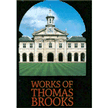 |
Works of Thomas Brooks, 6 Volumes |
This hit ordered by
Gordan
1 In the Speak-Easy
![]()
Labels: Book Recommendations, Books, Gordan Runyan, Precious Remedies, Sin, Temptation, Thomas Brooks
Wednesday, December 10, 2008
ESV Study Bible
"Though I still prefer to preach from and memorize the King James, I really enjoy digging into the new ESV translation. Hey, it's the hot thing among the "young, restless, and Reformed" so you know it has to be good. Plus, right now this is a pretty tantalizing price (click the link to check...it was over 40 percent off this morning.)"
-Gordan
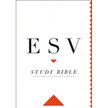 | ESV Study Bible, Hardcover The ESV Study Bible includes more than 25,000 notes, written specifically for the ESV Study Bible. These notes focus especially on understanding the meaning of the text, giving answers to frequently raised questions, and providing theological, historical, and archaeological background—all for the purpose of helping readers to understand the Bible in a deeper way. The ESV Study Bible also provides a wealth of additional resources. Thus the introductions to each book include essential information about the author, date, and place of writing; an extensive chart of key themes; a summary of how the book fits in with the rest of the biblical storyline; a description of literary features; an outline of the book; and a large full-color map showing the setting of the book. Another unique feature is the inclusion of over 50 helpful articles on topics such as the authority and truthfulness of the Bible, reading the Bible for application, the Bible in worship and prayer, the reliability of the biblical manuscripts, the relationship between archaeology and the Bible, an overview of biblical theology, and many more. Other key resources include a system of 80,000 cross references and a concordance (which together facilitate easy location of important words, passages, and biblical themes). In addition, over 200 color charts, located throughout the Bible, provide clear, concise presentations of essential information. View a complete list of editors, contributors, and articles. Features:
|
Monday, December 8, 2008
Does A Bad Tree Bear Good Fruit?
Jesus finishes his discourse in beatitudes by stating the defining difference between the children of the kingdom and the children of the world.
Primary to the entrance into the kingdom is the necessity that one is born again. The term is not found in John 3, there the term is anothen gennao, born from above, or born from the beginning. The term born again is found in 1 Peter , anagennao, again born or born again. The distinction is subtle. The former indicates the origin or the source of the action, the latter, the action itself perfected. That is to say, the cause and effect. Indeed, in the first case what is hidden from view is the monergistic work of the Spirit in bringing about the conditions that will make it possible for one to understand the "beauty" of Truth. In the second, that generating action is found to have been accomplished, what is seen of the wind.
At the end of this article: Regeneration Necessary to Perceive the Beauty and Excellency of Divine Things Charles Hodge quotes J. Edwards
"...It is agreeable to the sense of the minds of men in all ages, not only that the fruit of effect of a good choice is virtuous, but the good choice itself from which that effect proceeds; yea, and not only so, but also the antecedent good disposition, temper or affection of the mind from whence proceeds that good choice, is virtuous. This is the general notion, not that principles derive their goodness from actions, but that actions derive their goodness from the principles whence they proceed; and so the act of choosing that which is good is no further virtuous than it proceeds from a good principle or virtuous disposition of mind; which supposes that a virtuous disposition of mind may be before a virtuous act of choice; and that therefore it is not necessary that there should first be thought, reflection, and choice before there can be any virtuous disposition. If the choice be first, before the existence of a good disposition of heart, what signifies that choice? There can, according to our natural notions, be no virtue in a choice which proceeds from no virtuous principle but from mere self-love, ambition, or some animal appetite." - 140 Jonathan Edwards, Works, vol 1 (Edinburgh, Banner of Truth, 1974), p. 177.
Hodge says:
It is the motive which gives the moral character to the act. If the motive is good, the act is good; if the motive is bad, the act is bad; if the motive is indifferent, so is the act. The act has no character apart from the motive This, it seems, is admitted with regard to all moral acts excepting the first. But the first act of a holy kind is an act of obedience, as well as all subsequent acts of the same kind. How then is it conceivable that the first act of obedience performed from the mere desire or self-love can be holy, when no other act of the same kind and performed from the same motive, either is or can be? How does its being first alter it very nature? It is still nothing more than as act done for self-gratification, and cannot be a holy act.
In earlier threads and with the eruption of accusations against James White as being both hyper-Calvinistic and freshly developing a new position has come the in house Calvinist debate on the ordo salutis and when regeneration takes place. As Hodge says, there really in no difference between the Arminian position and the defective Calvinistic belief that regeneration proceeds from faith. But, as can be seen, both the logical order and the temporal order must be that a righteous nature is regenerated before the action of faith can be considered a moral act. In other words, as I have argued elsewhere, and as John informs us, without a new nature and the abiding Holy Spirit, no one can believe. Having faith, as righteous act, can only proceed from a regenerated nature. Without a renewed nature, faith in Christ is sin, mere animal sensuality.
This hit ordered by
Strong Tower
3
In the Speak-Easy
![]()
Labels: callin' it like it is, Calvinism, Charles Hodge, Depravity, Edwards, Monergism, Synergism
Thursday, December 4, 2008
For He Who Sanctifies And Those Who Have Been Sanctified Are One
With the brouhaha over false allegations of heresy hurled at James White came the false claim that Calvin did not teach a limited atonement. Though this might seem a declension from the study of the subject of the atonement in Hebrews, it is not really. In John Calvin's sermon The Call to Witness there are three things to take note of: 1. That there is a definite purchase of an inheritance and the blood of Christ is not shed in vain as David Allen would have us believe. 2. That the object of that purchase has been perfected from before the beginning of time. 3. That the preaching of election is not to be neglected, for it is the Gospel of Jesus Christ.
This hit ordered by
Strong Tower
5
In the Speak-Easy
![]()
Monday, December 1, 2008
If I Could Force All Christians to Read....
Here are some books that would be on the mandatory list:
| The issue of the relationship of the New Testament Christian to the law of God is more complex than most of us have bothered to think about. This "debate" book does a fantastic job of clearly setting forth a handful of options that have historically been proposed. As a theonomist, of course, I think Greg L. Bahnsen carries the day here. But even if you disagree, it's vital that we start thinking about these things Biblically. |
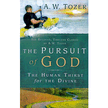 | The Pursuit of God |
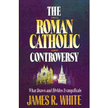 | The Roman Catholic Controversy One of the greatest needs among modern Protestants, in my view, is that we remember what it is that we're protesting against. It's especially vital in our day, when the battle cries seem to be, "Theology isn't worth fighting about!" and "Can't we all just get along?" Dr. White does an even-handed job of evaluating the Pope's church, by referencing Catholic writings on theology. This is important: He isn't constructing straw-men, but rather allowing Catholicism to speak for itself. Very instructive.
For other great books that come with hearty, Reformed Mafia approval, see here. |
This hit ordered by
Gordan
0
In the Speak-Easy
![]()
Labels: Book Recommendations
Arminianism and Regeneration-Prior-to-Faith
Article 3 of The Five Arminian Articles of 1610:
That man has not saving grace of himself, not of the energy of his free will, inasmuch as he, in the state of apostasy and sin, can of and by himself neither think, will, nor do any thing that is truly good (such as saving Faith eminently is);
[A fairly strong statement that fallen man can do nothing, including have faith in the Gospel of Christ, that is anything other than evil. -GR]
but that it is needful that he be born again of God in Christ, through his Holy Spirit, and renewed in his understanding, inclination, or will, and all his powers, in order that he may rightly understand, think, will, and effect what is truly good, according to the Word of Christ, John XV.5; 'Without me ye can do nothing.'
-from pages 546-547 of Philip Schaff's The Creeds of Christendom, Volume III. (Brackets mine, of course.)
Note well the phrase "it is needful that he be born again of God," and its relation to understanding and doing that which is "truly good"; and, note that the article has specified that faith is included in that true good. This Arminian confession, the foundational Arminian confession, which is the basis of the famed Remonstrance, has clearly specified that being born again must precede, logically, faith in Christ.
What this means is that when synergists of any stripe, even those claiming to be Arminian, argue against regeneration-before-faith, they are not advancing the cause of true Arminianism. Rather, they are denying the doctrine of Total Depravity (which both Calvinists and Arminians affirm) and are siding with teaching of Pelagius. Pelagius, of course, maintained that
a) Adam's fall into sin did not render his posterity incapable of doing Good, and
b) the fact that men are commanded to do Good is proof that they can.
These concepts undergird the position of the mainstream leadership of the Southern Baptist Convention. This is the position that was advanced at the John 3:16 Conference. It is neither Calvinistic nor Arminian in its origin. Classic theologians in both those camps would label the theology of J316C as some form of Pelagianism.
Granted, it is not "hard" Pelagian: it is some greatly softened version, but it maintains the core ideas. Specifically, man's fallen state does not render him incapable of truly doing Good, and the fact that the Gospel commands him to do so is proof that he can.
Again, for those keeping score, Pelagianism is a heresy. Whether or not the J316C version of it is damnable is up to God the Judge; but we can certainly render the verdict that it is a different gospel, and thus anathema (Galatians 1.)
This hit ordered by
Gordan
30
In the Speak-Easy
![]()
Labels: Arminianism, False teachers, Gordan Runyan, John 3:16 Conference, Pelagianism
Spurgeon's Battles with the Hyper-Calvinists
In the aftermath of the now infamous ( "In famous?") John 3:16 Conference, a debate that is swirling is over Hyper-Calvinism. What is Hyper-Calvinism? Who is one, and who isn't? Is Dr. James White? (He isn't, but why or why not?)
It has become typical for anti-Calvinists, especially those within the Southern Baptist Convention, to freely apply the epithet, Hyper-Calvinist, to anyone who is
a) more Calvinistic than I am, or
b) holding to all five points of the TULIP, or
c) is fierce in their defense of Calvinism, or
d) is unapologetic about showing where my own home-grown soteriology is not consistently Biblical, and does not respect how good my own system makes me feel about God, etc.
Clearly, it's a good time for all who are concerned about things like Truth, to become more familiar with the issues that are at stake in this argument. To that end, may I humbly recommend the following book to your consideration. It will not make you an expert in Hyper-Calvinism, but it will go a long way toward shedding historical and Biblical light on the current controversy.
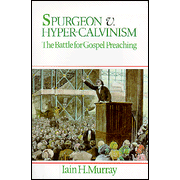 |
Spurgeon vs. Hyper-Calvinism: The Battle for Gospel Preaching By Iain H. Murray / Banner Of Truth In the wide coverage given to Spurgeon's ministry since his death in 1892, one controversy in which he was at the centre has been left largely untouched. It concerned what his Autobiography called 'the first serious attack' on his ministry. Fellow Baptists of Hyper-Calvinistic persuasion condemned him for believing that along with 'impassioned appeal to every sinner to come to Christ and be saved'. To this Spurgeon replied that he was not only teaching what was in the old Baptist Confessions, but, more important, his evangelistic preaching was true to the New Testament itself. After a portrait of Spurgeon as a man living for the Word of God, Iain Murray details the furore which his preaching caused among those who opposed his gospel preaching. 176 pgs. |
This hit ordered by
Gordan
0
In the Speak-Easy
![]()
Labels: Calvinism, Hyper-Calvinism, Spurgeon
Calvin's Commentaries (at 10% normal retail)
This morning I checked the price for this set, and my jaw hung open. I got my set of Calvin's Commentaries for several times the price being offered here. It's a 90% savings we're talking about today. Pretty amazing.
Consulting this set has become a regular stop along the way in my weekly sermon preparation. I've noticed that if you have the Matthew Henry commentary and you compare it with Calvin, you'll see where Henry got a lot of his stuff. No plagiarism, mind you; I'm merely saying that you can see where the great American puritan went to be fed and taught himself.
 | Calvin's Commentaries, 22 Volumes By John Calvin A towering figure in the Reformation and prolific scholar and theologian, John Calvin authored not only his famous Institutes of the Christian Religion, but commentaries on twenty-four books of the Old Testament and all of the New Testament except for 2 and 3 John and Revelation. These classic commentaries continue to be valued exegetical reference works for pastors and serious students of the Bible today. |
Or, if you're one o' them fancy-schmancy hi-tech nerds, there's the CD version, for even a few bucks less.
 | Calvin's Commentaries on CD-ROM All 22 volumes of the Baker edition are now available on the Libronix Digital Library System. Always the Renaissance humanist, Calvin offers a clear, forceful exegetical/homiletical treatment of nearly every book in the Old and New Testaments. Many still consult this work for its enduring insights. |
This hit ordered by
Gordan
0
In the Speak-Easy
![]()
Labels: Books, Calvin, Calvinism, Commentaries

